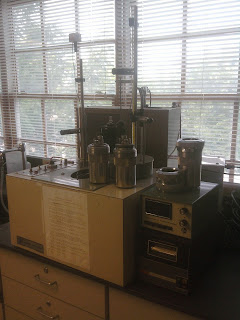
Back in the early days of this blog, I made mention of the James Webb Space Telescope (JWST). The JWST is set to take the place of the Hubble, now that the Hubble is in semi-retirement. Then, as now, I'm really excited about the JWST. One of its primary missions will be to peer back to the beginnings of the Universe; back to the time when light first came into existence.
That is seriously awesome. It's like time travel, but not.
And now, on top of everything else falling apart around us, it looks like congress may use the federal budget deficit as an excuse to cut the program. A program, by the way, this is nearly complete. As I learned via Pharyngula today, cancellation of the JWST project is eminent. I recommend following that last link and reading the column by Lawrence Krauss. It is powerful, concise, and says more about this potential tragedy than I ever could.





